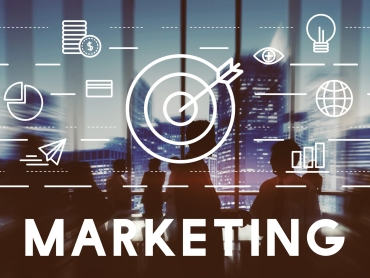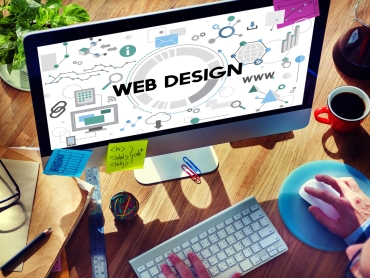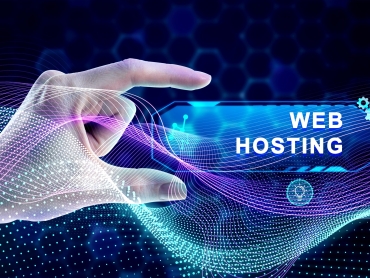In today’s fast-moving business world, building strong, lasting relationships with customers isn’t just nice—it’s critical. That’s where Customer Relationship Management (CRM) steps in.
But CRM isn’t just a fancy software tool. It’s a strategy, a culture, and a way to put your customers at the center of everything you do. In 2025, CRM is smarter, faster, and more human than ever before. It helps businesses of all sizes—from startups to global enterprises—understand their customers, anticipate needs, and build loyalty that lasts.
This blog takes a straightforward, human approach to CRM in 2025 and breaks down how it benefits businesses and customers alike with an SEO-smart framework that helps you rank while delivering real value.
What Is Customer Relationship Management (CRM)?
Simply put, CRM is a system and strategy for managing every interaction your business has with customers and prospects.
It’s about:
Collecting and organizing customer data (contact details, past purchases, communication history, preferences).
Acting on this data to deliver personalized, consistent, and timely experiences.
Aligning teams across sales, marketing, and customer service so everyone sees the same “customer story.”
Think of CRM as giving your business a 360-degree view of each customer. This way, whether a customer calls support, engages on social media, or receives a marketing email, the experience feels seamless and personal.
Why CRM Matters (To People Like You and Me)
Think about the last time you contacted a company and didn’t have to repeat your story five times. Or when the emails and offers you got actually felt made for you, not just a random blast. That’s CRM working behind the scenes.
On the business side, CRM helps by:
Keeping Everyone on the Same Page: Sales, marketing, and customer support instantly share info for faster, more coherent service.
Saving Time and Reducing Errors: Automation handles routine tasks so nothing slips through the cracks.
Making Marketing Personal: Data-driven campaigns resonate more than generic ones.
Speeding Up Sales Cycles: Sales reps access all customer info anytime, anywhere.
Building Loyalty: Personal touches and proactive service increase retention.
Real-World Example:
Netflix uses CRM to track viewing behavior. Instead of sending you a random list of shows, it recommends exactly what you’re likely to watch next. That personalization keeps you engaged—and subscribed.
Real-World CRM Benefits (By the Numbers)
| Benefit | What It Means for You |
|---|---|
| 360-Degree Customer View | All history & preferences in one place—no repeated questions. |
| Faster Sales & Follow-Ups | Sales cycles shrink by 30–40% with smart automation. |
| Improved Retention | Personalized service drives loyalty & lifetime value. |
| Team Collaboration | Sales, marketing, & support work in sync. |
| Scalable Growth | CRM grows with your business without losing quality. |
Case Study: Small Business Success
A boutique clothing store implemented HubSpot CRM in 2024. Within six months, it:
Reduced missed customer follow-ups by 50%.
Increased repeat purchases by 35%.
Saw higher open rates (60%) from personalized emails.
How CRM Feels Human in 2025
CRM isn’t about cold data—it’s about people.
In 2025, advanced CRMs powered by AI and automation still focus on making interactions more human, not less. By capturing every meaningful interaction, they help your customers feel seen and heard.
It’s like giving your team a playbook tailored to each customer. Everyone—from the support rep to the CEO—knows where the customer is in their journey and can respond thoughtfully.
Support can answer questions without making customers repeat themselves.
Marketing can suggest products customers actually want.
Sales can offer the right solution at the right time.
This transforms CRM from being “just software” into a customer empathy engine.
Practical CRM Tips for Businesses
Here are actionable ways to get the most out of CRM in 2025:
Centralize Your Data
Stop scattering customer info across emails and spreadsheets. Use CRM as your single source of truth.Automate Smartly
Set up reminders, chatbots for FAQs, and automated follow-ups. But keep a balance—automation should support human connection, not replace it.Personalize Everything
Use customer behavior data to tailor emails, offers, and product recommendations. Personalization builds trust and loyalty.Train Your Team
CRM isn’t just for IT or sales. Everyone—from marketing to customer support—should understand how to use CRM to do their job better.Review & Adapt
Regularly analyze CRM reports. What do trends show? Which campaigns work? What needs improving?
Advanced CRM in 2025: What’s New?
CRM has evolved rapidly. In 2025, here’s what’s trending:
AI-Powered Insights: Predict customer needs before they arise.
Voice & Chat Integrations: Customers can engage with businesses through voice assistants and chat apps.
Customer Data Platforms (CDPs): Deep integration across multiple channels for richer insights.
Hyper-Personalization: Tailored offers, emails, and support at scale.
CRM for Remote Teams: Cloud-based CRMs empower distributed teams to collaborate seamlessly.
CRM Implementation: Step-by-Step
Want to implement CRM the right way? Follow this roadmap:
Define Your Goals (e.g., improve retention, boost sales, unify data).
Choose the Right CRM (Salesforce, HubSpot, Zoho, Dynamics 365).
Clean Your Data (remove duplicates, fix errors).
Set Up Automation (follow-ups, lead scoring, reminders).
Train Your Team (workshops, onboarding, ongoing training).
Measure Success (track KPIs like sales cycle time, churn rate, NPS).
Common CRM Mistakes to Avoid
Over-Automation: Customers feel like they’re talking to robots.
Ignoring Team Adoption: A CRM only works if your team actually uses it.
Bad Data: Garbage in, garbage out. Keep your database clean.
One-Size-Fits-All Approach: Customize CRM features to your unique business needs.
Future of CRM Beyond 2025
Looking ahead, CRM will become even more:
Predictive: Anticipating customer needs using AI and machine learning.
Omnichannel: Every interaction—social media, chat, email, voice—flows into one view.
Emotion-Aware: CRM tools may even read tone and sentiment in customer interactions.
Self-Learning: CRM systems will continuously improve workflows without manual updates.
Final Thoughts: Why CRM Matters More Than Ever
At its core, CRM is about human connection.
In 2025, businesses that succeed will be the ones that don’t just collect data but use it to create meaningful, lasting customer relationships.
CRM is no longer optional—it’s a growth engine, loyalty builder, and customer empathy tool rolled into one.
If you’re serious about building a business that thrives long-term, now is the time to invest in CRM done right.








